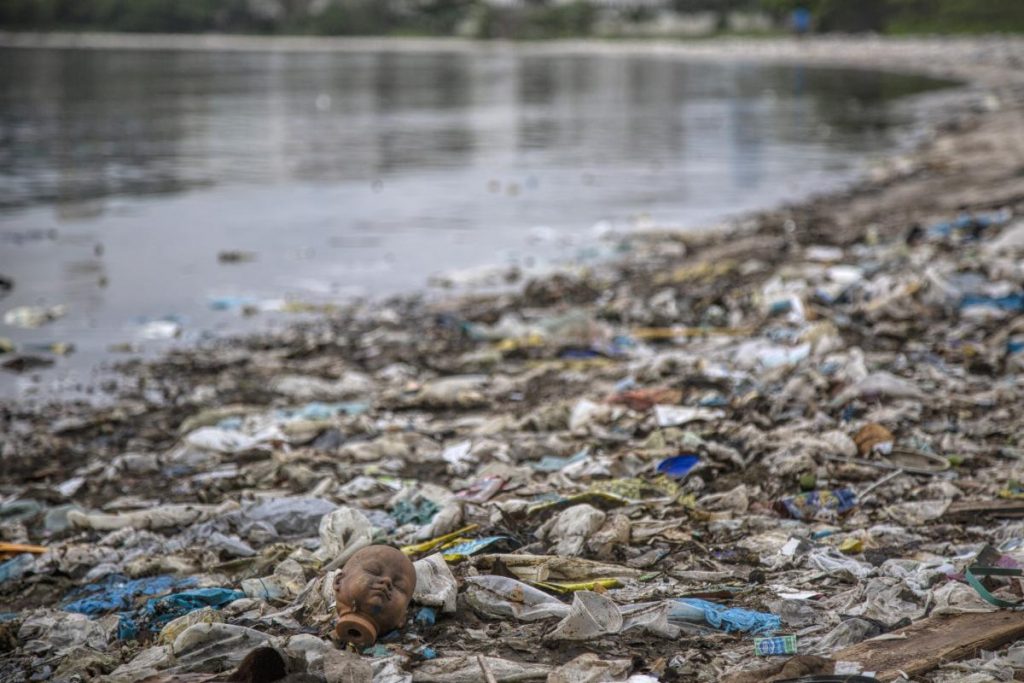
This Wednesday (14/4), Oceana presents the report “An ocean free of plastic – challenges to reduce marine pollution in Brazil ” in a webinar promoted by the Brazilian Navy on marine pollution by plastics. The event seeks to provide scientific knowledge for the work of the Technical-Scientific Commission for the Advice and Support of Monitoring Activities and the Neutralization of the Impacts Resulting from Marine Pollution by Oil and other Pollutants in the Blue Amazon (ComTecPolÓleo).
Oceana’s report brings a radiograph of marine plastic pollution in the country and proposes solutions to address the problem. According to the study, Brazil alone is responsible for at least 325,000 tonnes of waste that is taken to sea from land-based sources, such as open-air dumps and inadequate disposal. “Most of this marine waste is made up of disposable plastic products and packaging. The measures for recycling and treating this waste alone will never solve the problem that is growing and urgent, it is necessary to reduce the production of this material ”, warns the manager of the campaign to combat marine pollution by Oceana plastics, environmental engineer Lara Iwanicki.
The Brazilian industry annually produces around 500 billion disposable plastic items such as cups, cutlery, plastic bags, and packaging for the most diverse applications. There are 15 thousand items per second. Lara Iwanicki explains that, in general, these items are not conceived, designed or placed on the market to be reused or rotated in their life cycle – they are made for consumption and immediate disposal, generating a large amount of non-biodegradable waste. Once at sea, the damage to marine life and to those living on the sea resources is enormous.
To reduce marine plastic pollution, the study presents a series of recommendations. One is the creation of a national law that reduces the production and use of disposable plastic items. Oceana also proposes the creation of Free Plastic Zones (ZLPs) and the commitment of companies to offer free disposable plastic alternatives to consumers.
WORK GROUP
This Wednesday’s webinar will be mediated by Professor Alexander Turra, from the Oceanographic Institute of the University of São Paulo (IO / USP), and will include the participation of representatives from different sectors related to the theme. This stage of the working group is closed to guests.
ComTecPolÓleo was created in October 2020 with the objective of designing an inclusive technical-scientific articulation mechanism, in favor of increasing the capacity to detect and prevent impacts. The mitigation of damage in situations of threat or environmental disasters resulting from pollution by oil and other pollutants in the sea – including plastics, is also part of the work.
Access: “A plastic-free ocean – challenges to reduce marine pollution in Brazil